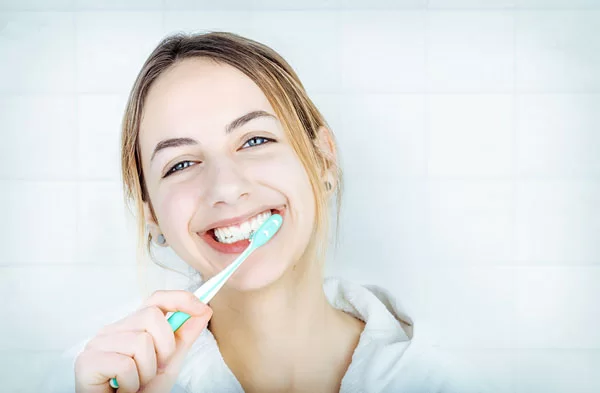Long-Lasting Success with Proper Dental Crown Care
Dental crowns are an effective way to protect damaged or weakened teeth, offering strength, durability, and an improved smile. However, proper care is essential to ensure their long-term success. Here are aftercare tips to help you maintain the longevity and quality of your dental crowns from our dentists at our Denton, TX, office.
For more information or to schedule an appointment, call us at (940) 566-4888.
Why Taking Care of Your Dental Crown Matters
Proper dental crown care provides lasting support for your smile, helping to avoid potential issues and discomfort. Here’s why following these steps is essential:
- Healing and Recovery: After crown placement, your gums need time to heal. Following your dentist’s guidance promotes faster recovery and minimizes post-procedure discomfort.
- Oral Hygiene Maintenance: Keeping up with oral hygiene protects your crowns and natural teeth. Brush and floss daily to prevent plaque from building up around the crown, which helps reduce the risk of gum disease and decay.
- Regular Checkups: Routine dental checkups allow your dentist to monitor the health of your crown, ensuring that any early signs of wear or potential issues are addressed promptly.
- Longevity of Crowns: With proper care, crowns can last a decade or more. Good maintenance habits maximize their lifespan, preventing unnecessary replacements.
How to Care for Your Dental Crown
The Basics
Taking care of dental crowns isn’t much different from caring for your natural teeth, with a few added precautions:
- Practice Good Oral Hygiene: Brush twice daily with a soft-bristled toothbrush and fluoride toothpaste. Floss daily, paying special attention to the area where the crown meets your gums, and rinse with antimicrobial mouthwash to reduce bacteria.
- Avoid Hard and Sticky Foods: While crowns are durable, they can still be damaged by excessive force or stickiness. Avoid hard items like ice and nuts, as well as sticky foods that could dislodge the crown.
- Limit Staining Foods: Though crowns are stain-resistant, discoloration can still occur. Minimize your intake of coffee, tea, red wine, and tobacco for lasting brightness.
Oral Hygiene Practices
Maintaining proper oral hygiene is crucial to preserving both the health and appearance of your crowns:
- Brushing Techniques: Use a soft-bristled brush, holding it at a 45-degree angle with small circular motions to clean around the crown effectively, especially near the gumline.
- Flossing: Regular flossing helps remove plaque and food particles around your crown. A floss threader or water flosser can be useful for reaching around the crown’s edges.
- Antimicrobial Mouthwash: Rinse daily with an antimicrobial mouthwash to help eliminate bacteria and prevent plaque buildup around your crowns.
Lifestyle Considerations
Certain lifestyle habits can impact the longevity and performance of your dental crown. Here are some tips to consider:
- Avoid Teeth Grinding and Clenching: Bruxism can damage crowns over time. If you grind your teeth, ask your dentist about a nightguard for protection.
- Wear Mouthguards During Sports: If you engage in contact sports, use a custom mouthguard to protect your crowns and teeth from trauma.
- Limit Sugary and Acidic Foods: Acidic or sugary foods can weaken enamel, even around crowns. Avoid frequent consumption of sodas, juices, and sugary snacks to protect your natural teeth and the foundation around the crown.
Caring for a Temporary Dental Crown
If you have a temporary crown before your permanent one is placed, follow these tips to protect it:
- Avoid Sticky and Hard Foods: Sticky foods may dislodge the crown, while hard foods can break it. Soft foods are best.
- Avoid Direct Flossing: Rather than pulling floss up between teeth, slide it out gently to prevent loosening the temporary crown.
- Keep Up with Oral Hygiene: Brush and rinse, but use care when flossing around the temporary crown.
Frequently Asked Questions
Absolutely! Brush and floss your dental crowns just like you would with natural teeth. It’s essential to clean the area where the crown meets the gumline to prevent plaque buildup and gum disease.
If you notice your dental crown feels loose or dislodged, contact your dentist immediately. A loose crown may need re-cementing or replacement to avoid complications. They’ll examine the crown and determine the best course of action.
While dental crowns themselves don’t get cavities, decay can develop in the tooth structure beneath. Good hygiene and regular checkups help catch any issues early.
Follow These Tips for Crown Longevity
With proper aftercare, your dental crown can provide lasting benefits. Keep up with good oral hygiene, visit your dentist regularly, and avoid habits that could jeopardize your crown’s stability.
Ready to learn more? Contact our Denton, TX, office at (940) 566-4888 to book your appointment. We proudly serve Denton and surrounding areas, including Robson Ranch, Corinth, Argyle, and Krum, TX.




